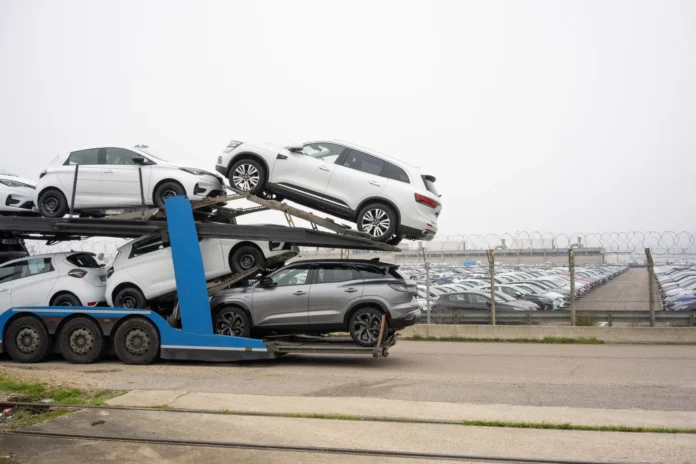The U.S. government’s imposition of a 25% tariff on imported cars is making waves across the global automotive market. One of the most notable impacts is on Jaguar Land Rover, the maker of luxury vehicles, which has paused shipments to the U.S. this month. This move comes as the British carmaker navigates the economic challenges brought on by the tariff.
Jaguar Land Rover, one of Britain’s largest car manufacturers, expressed the significance of the U.S. market for its luxury brand. However, with the new tariff structure, the company has found it necessary to reassess its approach. In a statement, Jaguar Land Rover highlighted that it is working on mid- to long-term plans while temporarily halting shipments. The company’s decision reflects the uncertainty facing the entire British automotive industry as it grapples with rising tariffs.
The impact of this decision is not isolated. Industry experts predict that other British carmakers will likely follow suit. The tariff has added pressure to an already struggling industry. The U.K. automotive sector is facing a decline in domestic demand while also working to retool factories for electric vehicles. Additionally, analysts predict that companies will be closely monitoring how the situation unfolds in the coming months.
The number of vehicles produced in the U.K. dropped significantly in the past year. According to the Society of Motor Manufacturers and Traders (SMMT), the production of cars fell by 13.9%, with just over 779,000 vehicles produced in 2024. More than 77% of these cars were meant for export, and a significant portion of those exports went to the U.S. However, the tariff has thrown a wrench in the U.K.’s export plans, leading many manufacturers to take preventive measures.
Jaguar Land Rover, like many others, had attempted to mitigate the tariff’s immediate effects by stockpiling cars in the U.S. before the tariff took effect. This strategy saw exports to the U.S. surge in the months leading up to the tariff’s imposition. December saw a 38.5% increase, January saw a 12.4% jump, and February experienced a 34.6% boost in shipments.
Despite these efforts, the situation remains challenging. Cars make up a significant portion of the U.K.’s exports to the U.S., valued at approximately $10.7 billion annually. However, cars only account for a small fraction of the broader trade relationship between the two nations. The U.S. imported $231.2 billion in goods and services from the U.K. last year, with services making up the majority of that figure.
As British carmakers pause shipments to the U.S., they continue to search for ways to adapt to the evolving economic landscape. The future of this trade relationship remains uncertain, but it’s clear that the tariff has sparked a reevaluation of strategies on both sides of the Atlantic.
For more business news updates, visit Dc brief.


